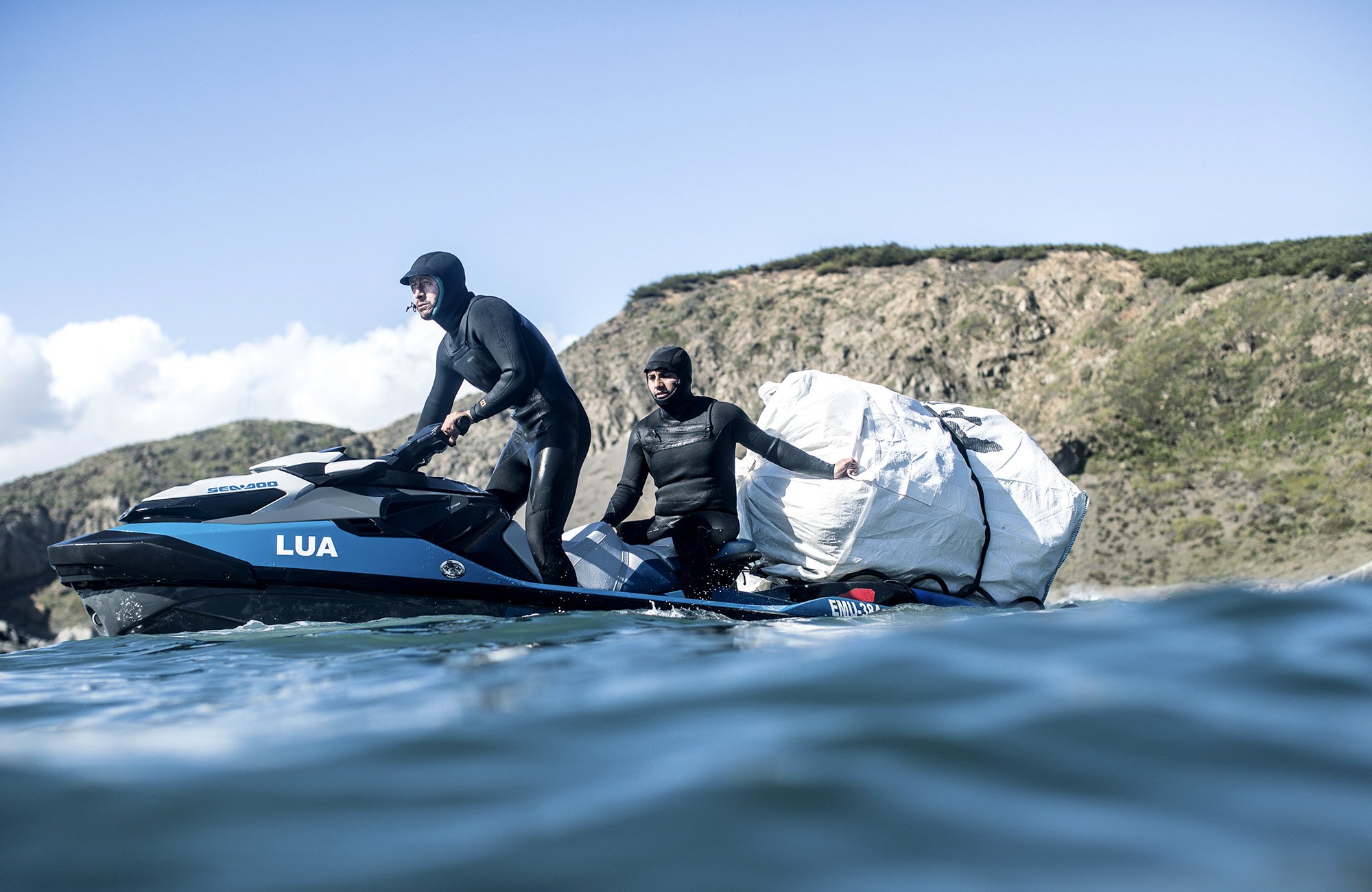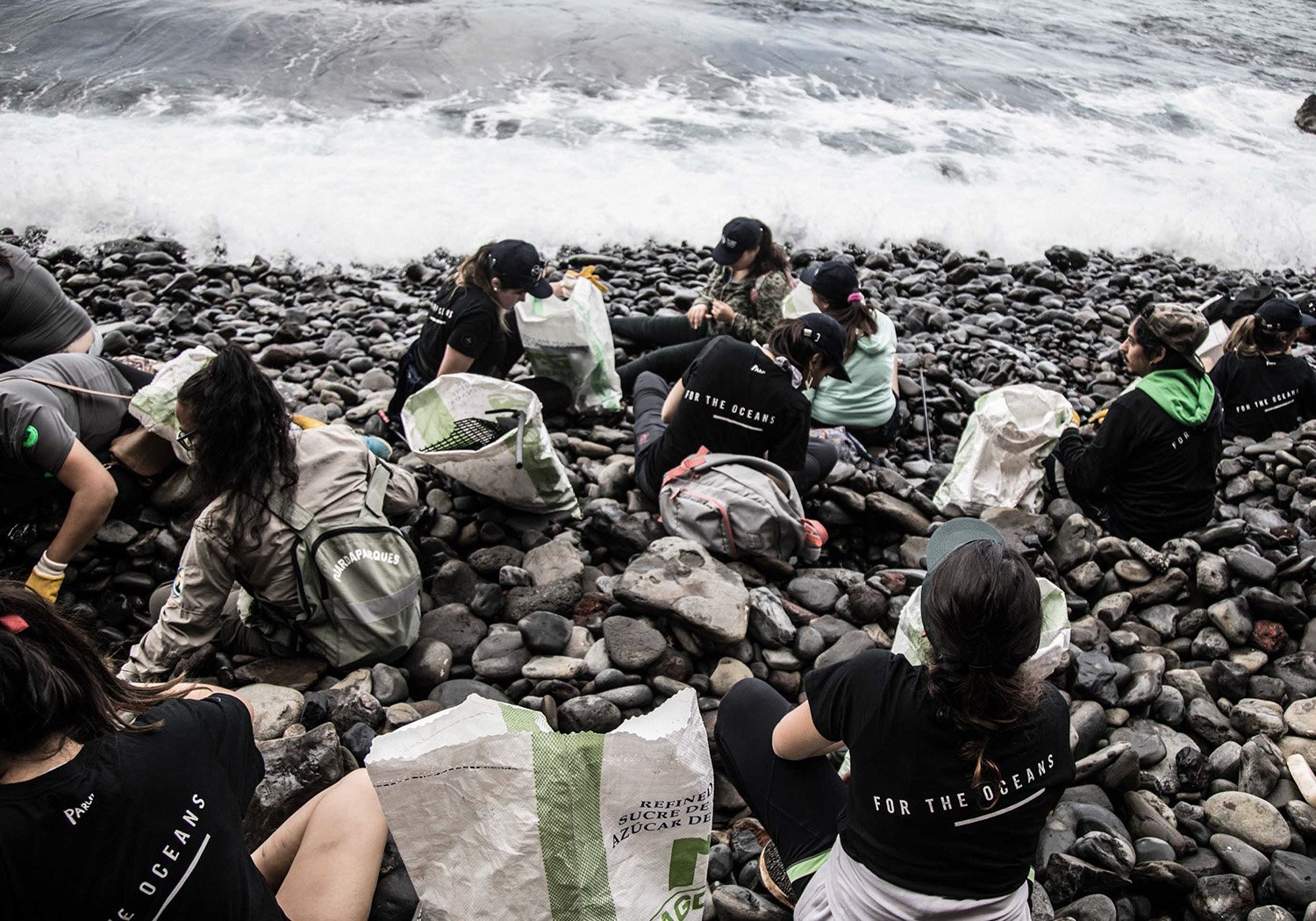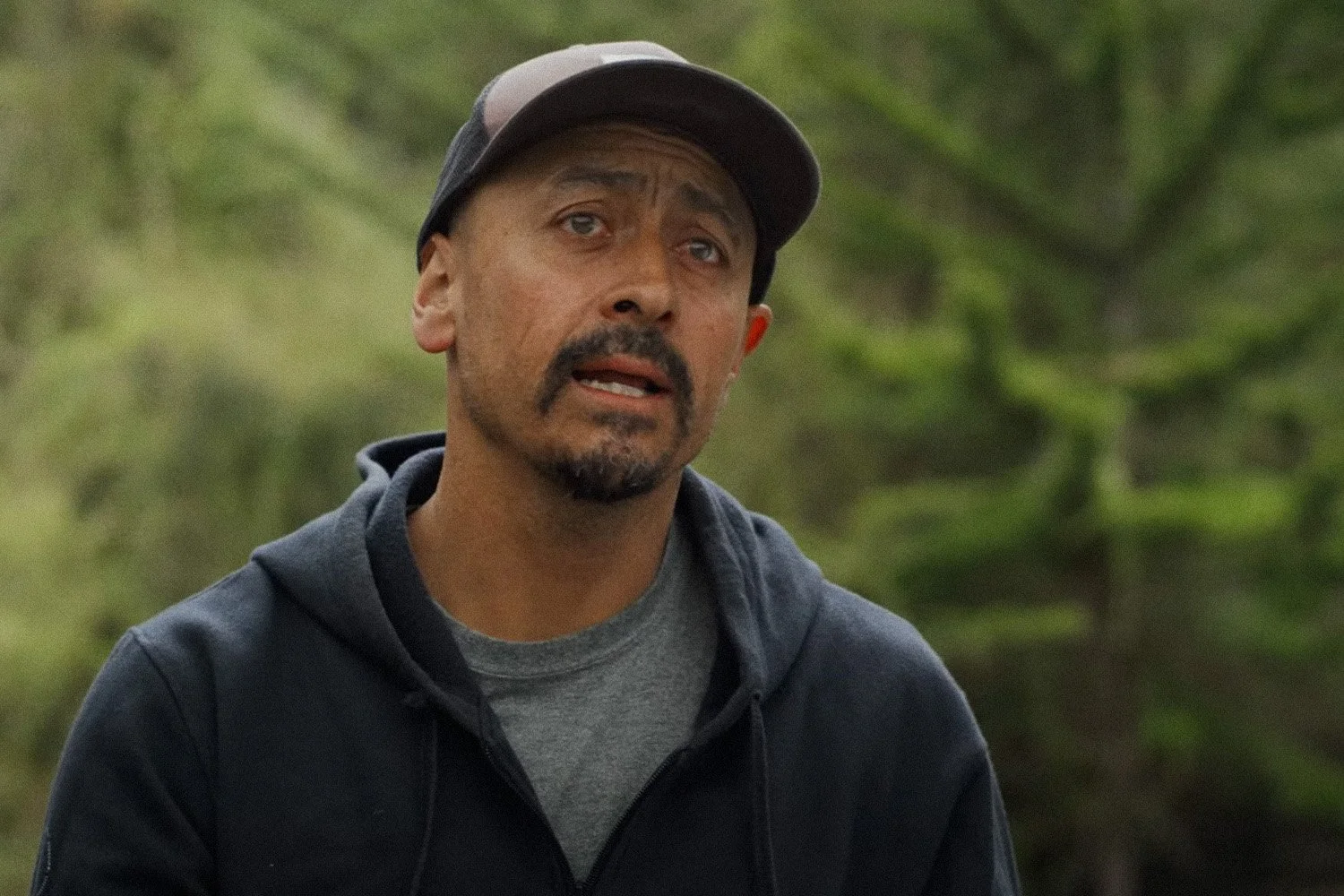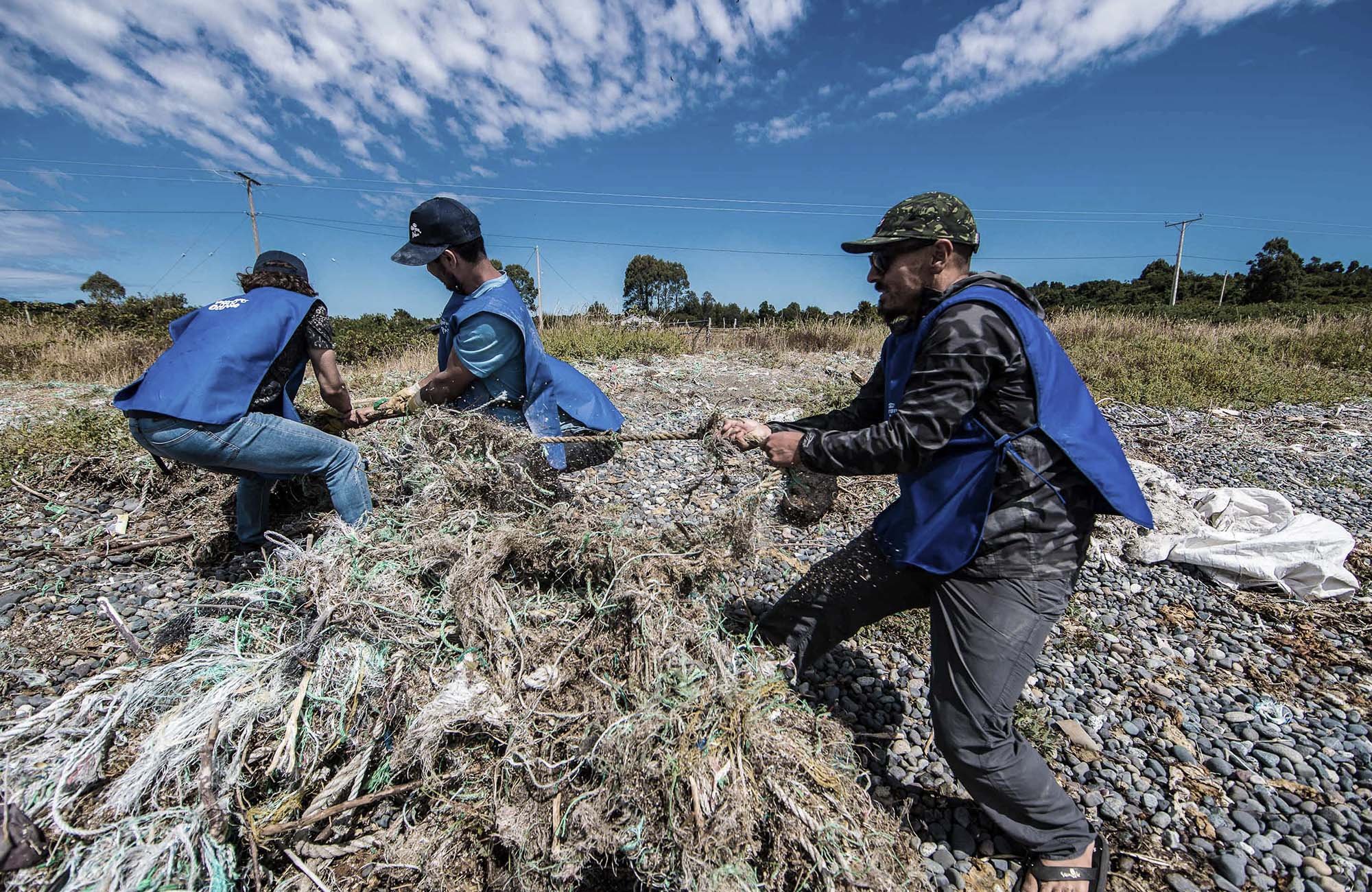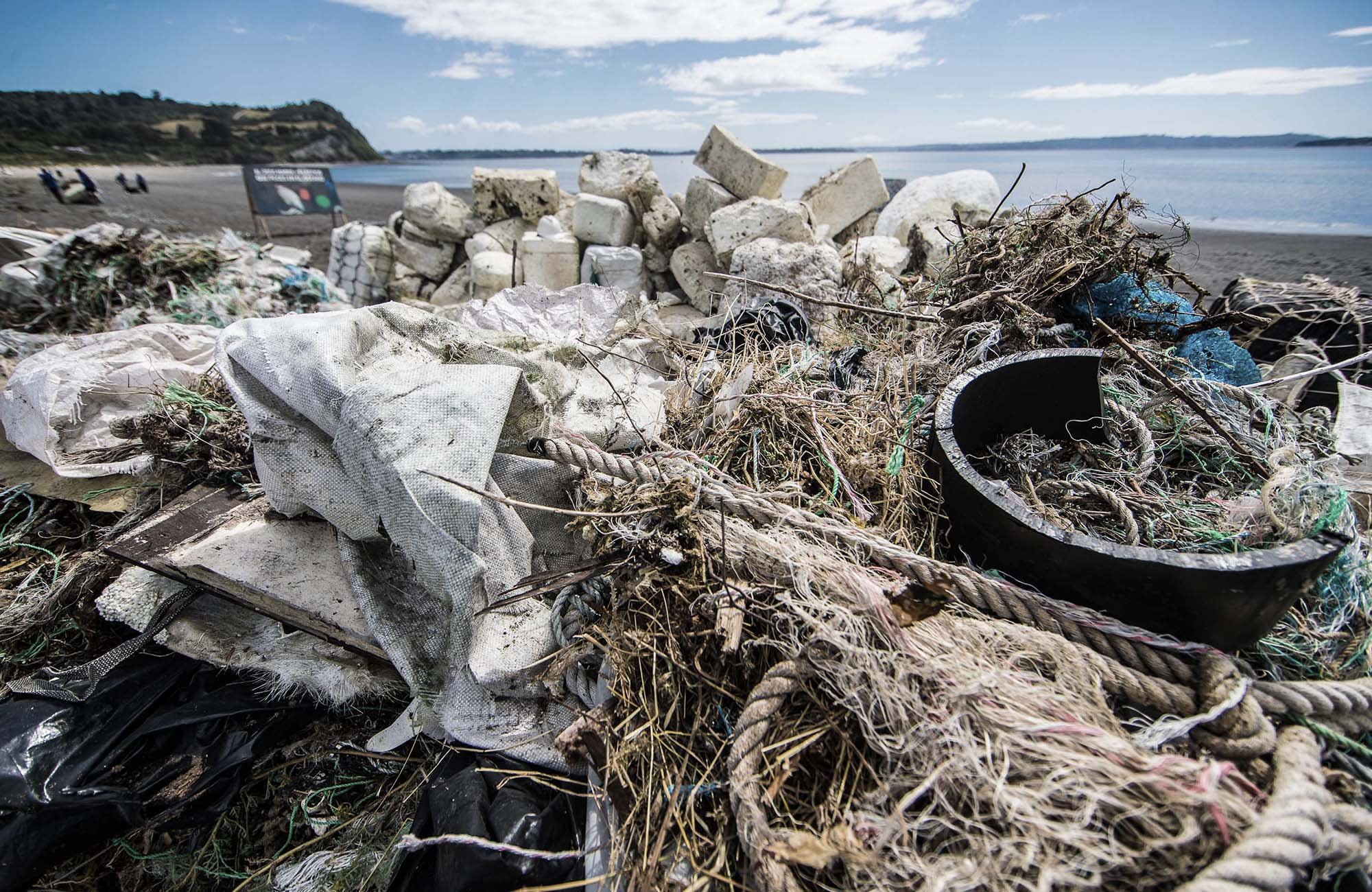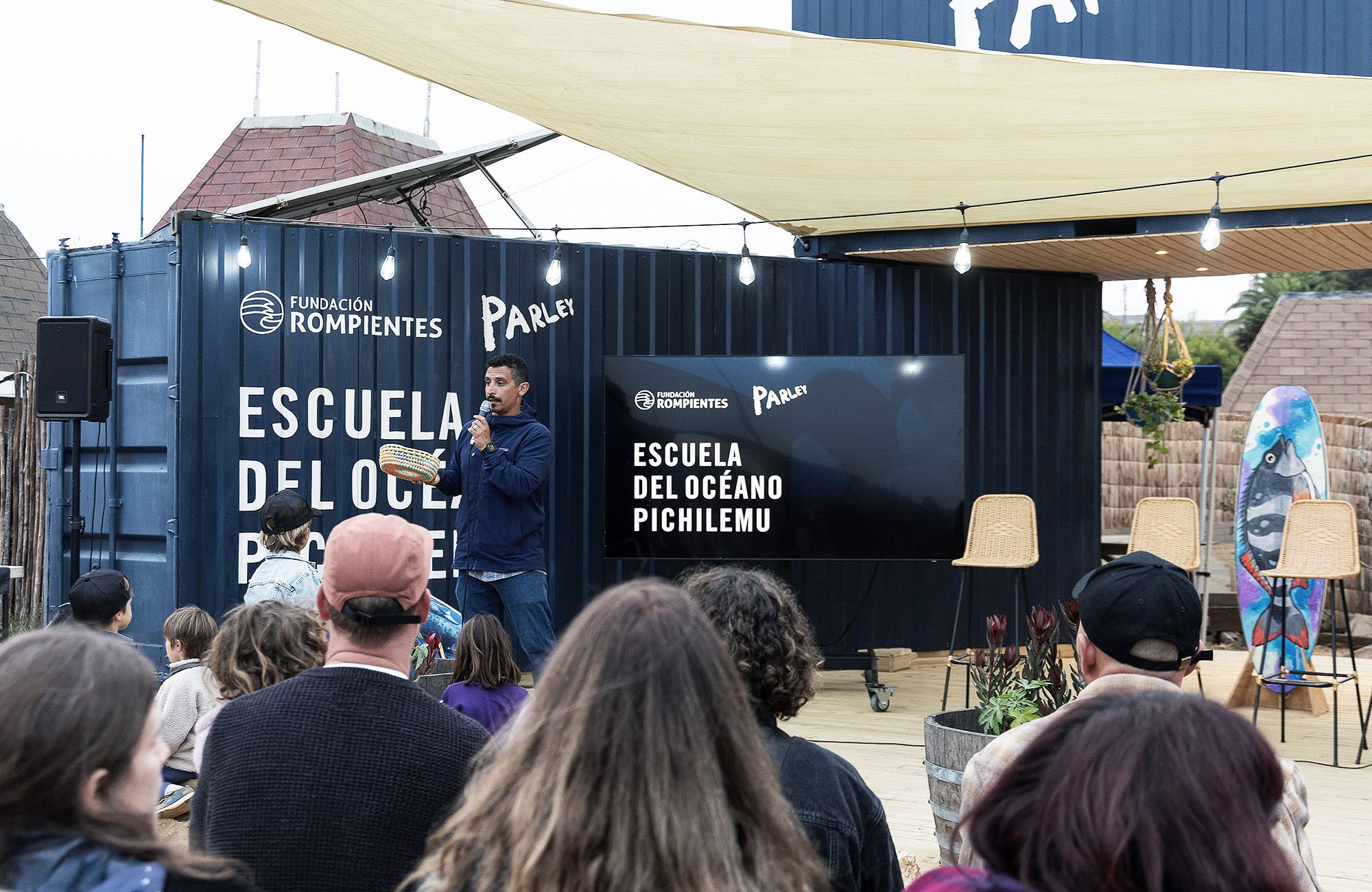Chile has one of the longest coastlines in the world, measuring 4,270 km from north to south. The country’s geography is extremely diverse, but regardless of the climate or topography, plastic pollution is a very real problem. Parley Chile has been working in collaboration with both local and global initiatives in order to organize cleanups and implement education initiatives throughout this coastal country.
“Studies have shown the importance of nature tourism
for Chile, creating a great incentive to protect
as much of it as we possibly can.”
Rodrigo Farias Moreno – Parley Chile
WORKING IN RAPA NUI
For over five hundred years, the moái stone figures of Rapa Nui have gazed out across endless, pristine waves. Today, the waves crashing ashore on this remote and isolated world bring drifting plastic waste from far away. Located some 2,300 miles west of Chile and 2,500 miles east of Tahiti, the island’s rocky beaches teach us there is no ‘away’ – even amid the vastness of the South Pacific.
Parley Chile has collaborated with the local community to intercept marine debris along the Viringa O Tuki coastline of Rapa Nui – also known as Easter Island, as well as implemented a youth education program, Hakarori, in collaboration with local NGO Te Mau o Te Vaikava o, bringing youth out into the water to learn about and immerse in the blue world beneath them.
THE AIR WE BREATHE
Our ongoing video series dives deep into Parley's global mission to safeguard our planet's blue spaces – meeting the activists, scientists, Indigenous leaders, surfers, volunteers and marine biologists dedicating their lives to protecting the seas.
Our latest episode takes us to Chile to explore the effect that plastic pollution from the fishing industry can have on even the most remote, beautiful locations – and meet the people working tirelessly to stem the tide.
COLLABORATING IN CHILOÉ
On the remote fringes of the Chiloé archipelago, Detif Beach is inundated with plastic pollution from the mussel and salmon farming industries. Working with local people and businesses, our team in Chile is working to turn a massive problem into new opportunities.
Every location brings a new challenge. Cleanups at Isla Lemuy and Isla Quehui in the Chiloé Archipelago have provided data that will help inform our strategy for long-term solutions: Parley AIR.
PARLEY AIR STATION PICHILEMU
Composed of modular container systems, Parley AIR Stations act as communal hubs for local communities and youth to meet, interact, learn, access new technologies and collaborate on solutions for the oceans. Together with our local partner Fundacion Rompientes, Parley Chile delivers educational programs to empower a new generation of ambassadors for the oceans.
Expanding on our existing locations in South Africa and Hawai’i, our forthcoming AIR Station will be located in the surf town of Pichilemu – Parley’s main base in the country.
SUPPORT OUR WORK IN CHILE
Your support helps us tackle plastic pollution and other threats facing the oceans. All donations go directly to our global teams, helping to fund cleanups, education and infrastructure projects.

Thank You to ALL our Collaborators IN CHILE
Punta de Lobos Foundation
Explora SUB
Alianza Humboldt
Armada de Chile
Rembre
Cerveza Corona
Desafio Chile
Te Mau o Te Vaikava
Municipalidad de Pichilemu
Fundación Rompientes
Fundacion Punta de Lobos
Explora SUB
Olas Limpias
Protección Oceánica
ONG Terranorte
UCEANOS
PARLEY Chile 🇨🇱
rodrigo@parley.tv
Av. Costanera 078
Pichilemu
Follow Parley Chile on Instagram
Parley’s global network works to protect marine environments from plastic pollution and other threats. Through collaborative cleanups with local businesses and organizations, our teams and volunteers intercept plastic waste from beaches, remote islands, rivers, mangroves and coastal communities. Each country team shares our vision for healthier oceans globally, and works locally to champion the Parley AIR Strategy.
Since the inception of Parley for the Oceans, our teams and volunteers have intercepted over 10 million kg of debris and cleaned 2.4 million square meters of coastline. We’ve also launched an extensive educational program, both virtual and physical. Our global cleanups
and educational initiatives have reached over 1 million participants across 66 different countries and counting.






